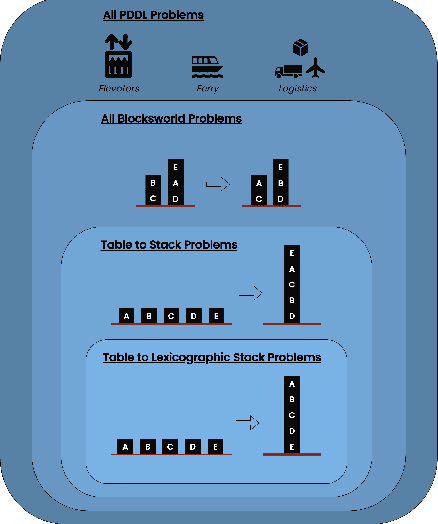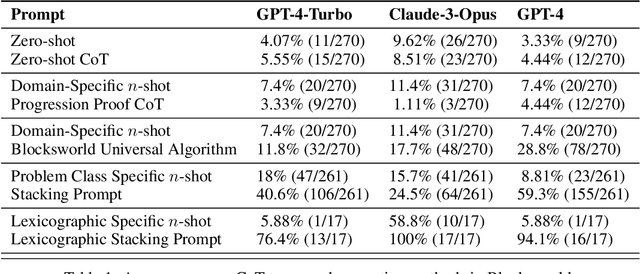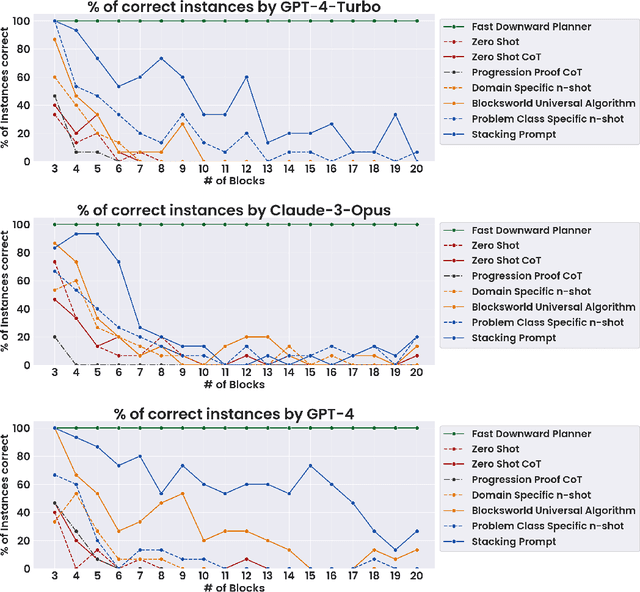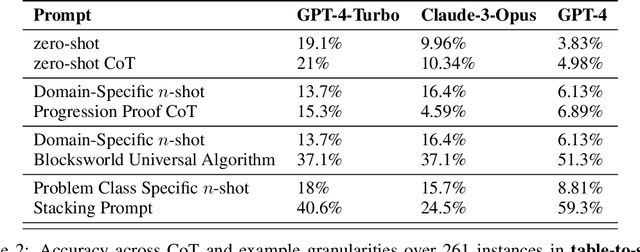Chain of Thoughtlessness: An Analysis of CoT in Planning
Paper and Code
May 08, 2024



Large language model (LLM) performance on reasoning problems typically does not generalize out of distribution. Previous work has claimed that this can be mitigated by modifying prompts to include examples with chains of thought--demonstrations of solution procedures--with the intuition that it is possible to in-context teach an LLM an algorithm for solving the problem. This paper presents a case study of chain of thought on problems from Blocksworld, a classical planning domain, and examine the performance of two state-of-the-art LLMs across two axes: generality of examples given in prompt, and complexity of problems queried with each prompt. While our problems are very simple, we only find meaningful performance improvements from chain of thought prompts when those prompts are exceedingly specific to their problem class, and that those improvements quickly deteriorate as the size n of the query-specified stack grows past the size of stacks shown in the examples. Our results hint that, contrary to previous claims in the literature, CoT's performance improvements do not stem from the model learning general algorithmic procedures via demonstrations and depend on carefully engineering highly problem specific prompts. This spotlights drawbacks of chain of thought, especially because of the sharp tradeoff between possible performance gains and the amount of human labor necessary to generate examples with correct reasoning traces.
 Add to Chrome
Add to Chrome Add to Firefox
Add to Firefox Add to Edge
Add to Edge